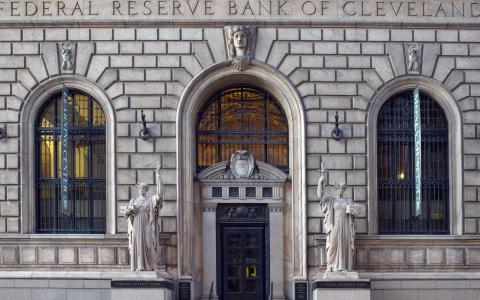
(Fortune) - Many on Wall Street wait on tenterhooks for updates from Fed Chairman Jerome Powell—literally analyzing his speeches down to the word—but JPMorgan Chase boss Jamie Dimon isn’t one of them.
Not because he doesn't care, but because the CEO of America's biggest bank is trying to focus on the economic policies of interest to the majority, not just the analysts of the Street.
In the past week, markets were volatile following a report from the Bureau of Labor Statistics saying new job creation was softer than expected. Experts brought forward their expectations of a much-anticipated interest rate cut, pricing in higher reductions than previously thought. Japanese equities dropped 12.4% on the news and the European and U.S. markets followed like falling dominoes.
The upset refocussed attention on the base rate—currently at a more than two-decade high of 5.25%—but Dimon questions whether the average American on the street is equally as jumpy about the Fed's next move.
"I hate to say this, I don't think it matters as much as other people think," Dimon told CNBC in an interview published yesterday.
"The rate effect itself isn't that critical. Obviously psychologically there'd be a lot of chatter out [there]: 'What does it mean?' 'What are they thinking?' 'Are things getting bad?'
"But I also remind people every day 325 million Americans go to work, go to their jobs, take care of their families, take care of their kids, build out their house, change a job. And it could be affected by the Fed changing rates by 50 base points? I don't think so."
Dimon's theory that consumers may not be as hung up on the base rate as their Wall Street counterparts has been supported to some extent by a working paper from the Federal Reserve Bank of Cleveland.
In a study published in January 2024, researchers found that communicating monetary policy to the average consumer had "small effects" on their perception of inflation, though it did have more of an impact on consumers who previously knew nothing about Fed rates.
The research also found that at the height of inflation in 2022—arguably when consumers might have been paying the most attention to a metric aimed at bringing it down—the public was instead disengaging.
Researchers Edward S. Knotek II, James Mitchell, Mathieu O. Pedemonte, and Taylor Shiroff wrote that in June 2022, when inflation reached 9.1%, "not everyone was paying attention to monetary policy nor was everyone equally attentive to the information ... even when presented with very short, tweet-like monetary policy communications designed to be easy to read."
Studies have also found consumers encounter little link between the Fed and their household expenses when it comes to their home affordability. A June note from the Federal Bank of Richmond reads: "Within the first 2 [and a half] years after a monetary policy shock, there is no statistically significant effect on total housing affordability. This suggests that trying to unconventionally leverage the Fed's interest rate policy to improve near-term housing affordability would likely be ineffective."
"Instead, advocates for housing affordability should be rooting for the Fed to be successful in its objectives of broad price stability and full employment, the underlying conditions that support the higher incomes, stable pricing environment and lower interest rates that make housing more affordable."
Dimon also isn't alone in his opinion that Wall Street is overly hung up on rates.
In April Bank of America CEO Brian Moynihan said he was looking elsewhere for his economic temperature check, telling CNBC’s Closing Bell analysts are “Fed watching way too much right now.”
Dimon said he was looking to bigger-picture issues coming down the line. These include warnings he has issued previously about geopolitical tensions, government deficits, and the election.
"I don't look as much at the short-term data," Dimon said. Instead he thinks about "the things that are inflationary but in the future."
Powell makes no promises
Dimon's agnosticism regarding Fed rate speculation might be tactical. After all, Powell and his peers have repeatedly made it clear that he will not cow to pressure from Wall Street, Donald Trump or analysts when it comes to a base rate reduction.
As recently as last week Powell made his mandate very clear. Speaking before the lackluster jobs report sent shockwaves through the market, he said: "The current situation is inflation has come down much closer to our goal, and that’s happened while unemployment has remained low. We’re very tightly focused on using our tools to try to foster that state of affairs continuing.
“Each of our meetings and all of our decisions are focussed strictly on that and really on nothing else.”
Powell also made it clear no decisions had yet been made about a cut in September, December, or otherwise, adding: “I don’t know what the data will reveal or how that will affect the appropriate path of our policy.”
Dimon—who was paid a record $36 million in 2023—seems satisfied that the Fed would take the best course of action, and added yesterday: "If they do it ... I'm sure they have good reason to do it and I'll rely on their instincts.
"I do expect they'll probably do it soon but they've seen more negative data than they had expected. But it goes back to expectations. All the expectations have been wrong too, so just always keep that in the back of your mind."
By Eleanor Pringle



